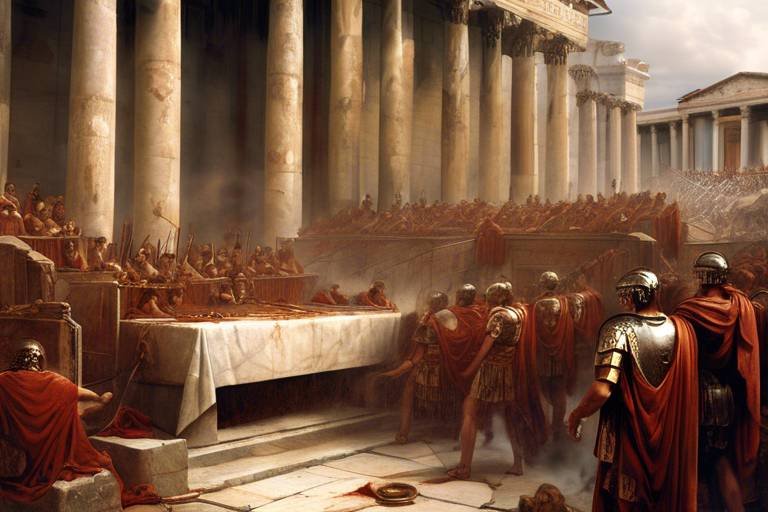The Legacy of the Roman Republic - Governance and Law
The legacy of the Roman Republic in governance and law is a monumental chapter in the history of civilization, with profound implications that reverberate through the corridors of time. The enduring influence of Roman governance and legal systems continues to shape modern societies, leaving an indelible mark on political structures and legal principles worldwide.
Founded on the principles of representative government and constitutional framework, the Roman Republic laid the groundwork for future political systems to flourish. The roots of the Republic run deep, nurturing the seeds of democracy and participatory governance that have blossomed into the diverse array of political structures we see today.
The legal system of the Roman Republic, with its cornerstone being the Twelve Tables, set a precedent for legal procedures and the concept of jus civile that permeates contemporary legal systems. The legacy of Roman law endures in the intricate tapestry of jurisprudence, weaving together principles of justice and equity that stand the test of time.
Central to the governance of the Republic were the roles and functions of the Roman Senate, magistrates, and other governmental institutions. Their collective impact on the separation of powers and checks and balances laid the foundation for stable governance and prudent decision-making, a model emulated by modern democracies.
The concept of Roman citizenship, with its attendant rights and responsibilities, shaped notions of citizenship and individual rights in ways that resonate in modern legal systems. The legacy of Roman citizenship underscores the intrinsic link between rights and duties, forging a bond between the individual and the state.
As the Roman Republic expanded its dominion, its administrative practices and governance of conquered territories set a template for imperial administration and colonial governance. The legacy of Roman expansionism echoes in the corridors of power, shaping the contours of global governance and territorial sovereignty.
The ideals of Roman Republicanism, including civic virtue, mixed government, and the rule of law, have left an indelible mark on Western political philosophy. These ideals continue to animate democratic principles and inform contemporary governance, breathing life into the spirit of participatory democracy.
The direct influence of Roman legal concepts, such as property rights, contracts, and civil law, has profoundly shaped the development of modern legal systems and the evolution of jurisprudence. The legacy of Roman law endures in the intricate web of legal principles that underpin the edifice of justice in contemporary societies.
However, the challenges that beset the Roman Republic, from internal corruption to external threats and the rise of authoritarianism, serve as cautionary tales for contemporary political struggles. The decline of the Republic serves as a stark reminder of the fragility of democratic institutions and the imperative of safeguarding the principles of governance.
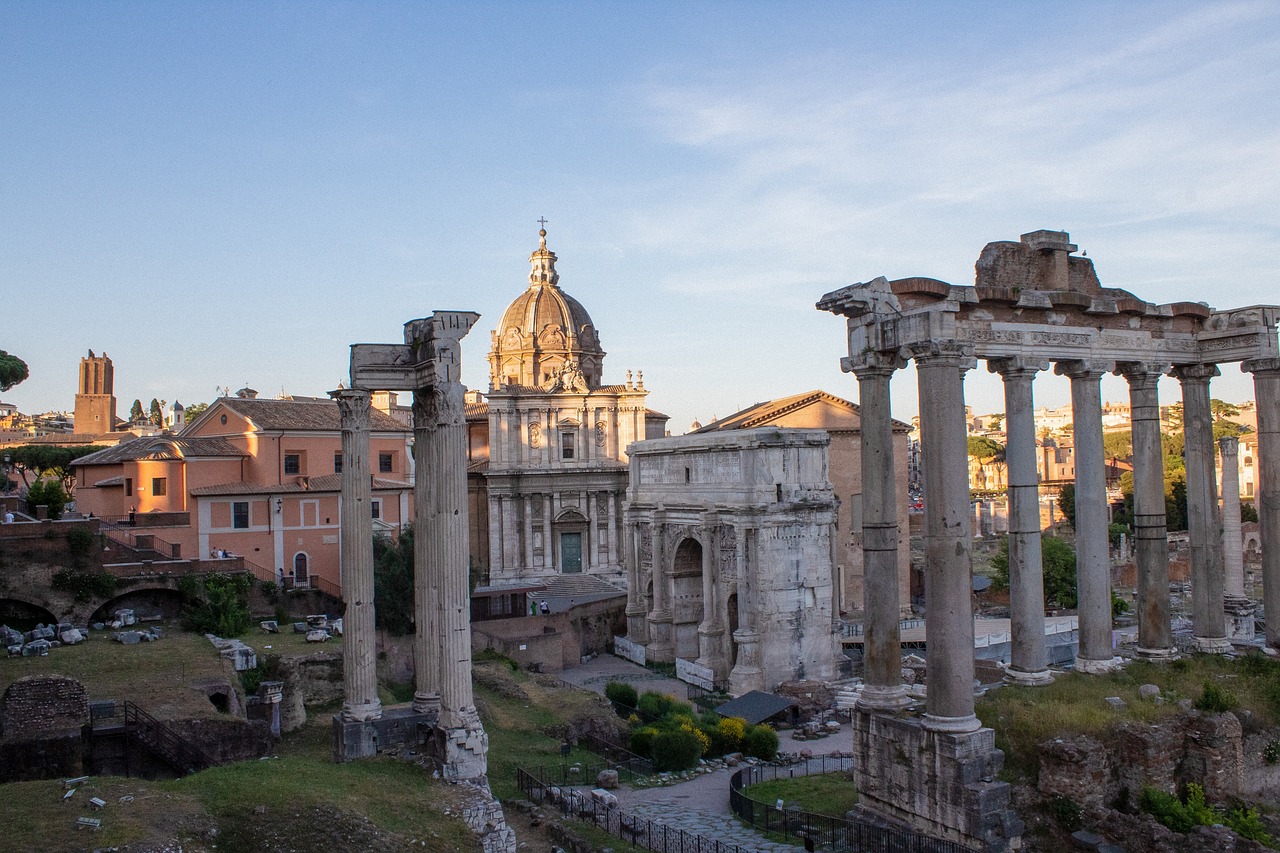
Foundations of Roman Republic
Exploring the enduring influence of Roman governance and legal systems on modern societies, highlighting key aspects of the Roman Republic's legacy in shaping political structures and legal principles that continue to impact the world today.
The foundations of the Roman Republic lie in its establishment as a constitutional state, marked by a delicate balance of power between various branches of government. The early Romans, dissatisfied with monarchical rule, developed a unique system based on the principles of representation and civic duty. This framework laid the groundwork for future political systems by emphasizing the importance of citizen participation and the rule of law.
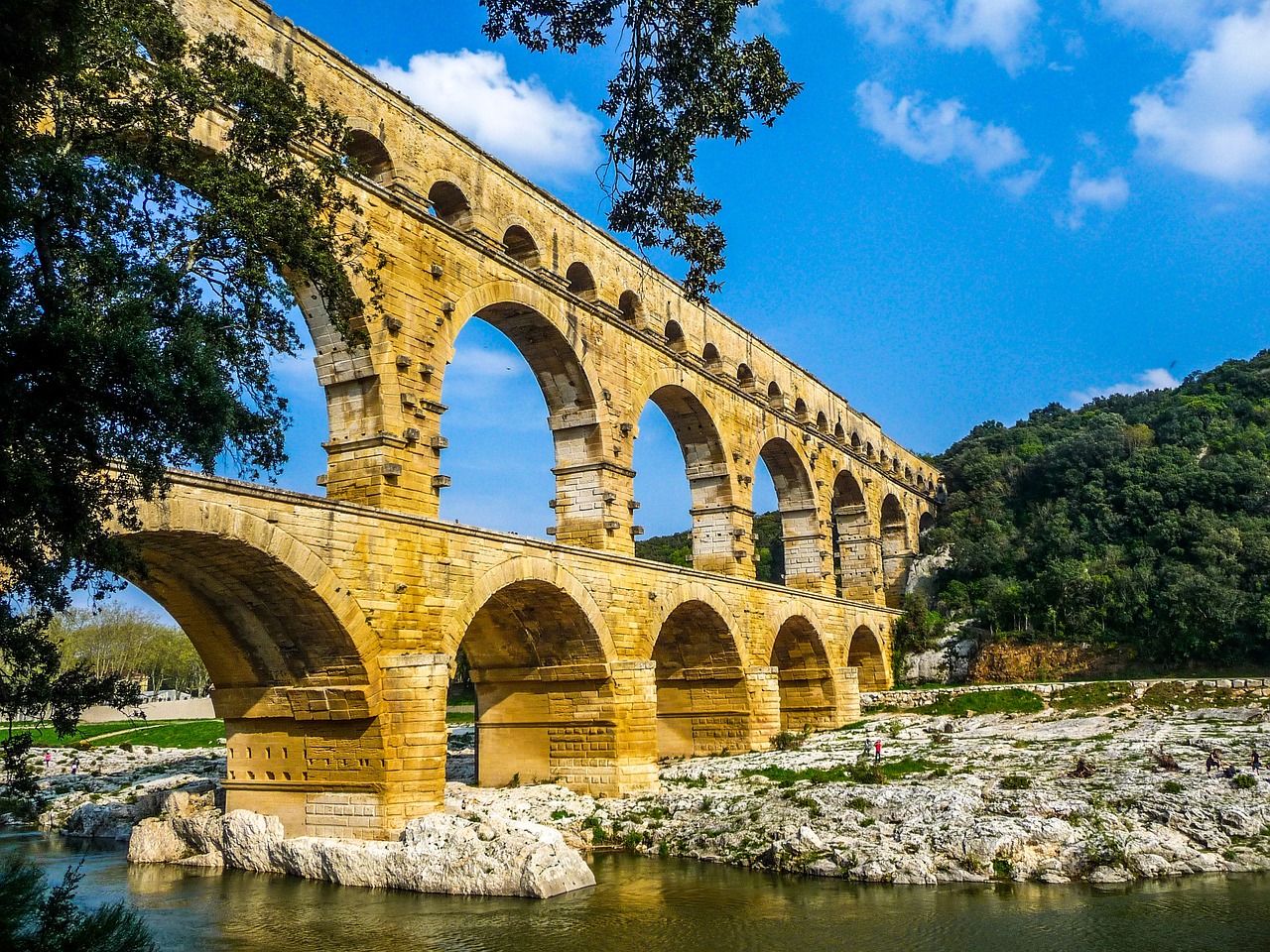
Legal System of the Roman Republic
The legal system of the Roman Republic was a cornerstone of its governance, laying the foundation for many modern legal principles and practices. One of the most significant contributions of the Roman legal system was the Twelve Tables, a set of laws inscribed on bronze tablets that established basic rights and procedures for Roman citizens. These laws covered a wide range of issues, from property rights to criminal offenses, and played a crucial role in shaping the development of Roman law.
Central to the Roman legal system was the concept of jus civile, or civil law, which governed the relationships between individuals and provided a framework for resolving disputes. This emphasis on codified law and legal procedures influenced the legal systems of subsequent societies, emphasizing the importance of written laws and due process.
In addition to the Twelve Tables, the Roman legal system also incorporated elements of customary law and legal precedent, allowing for flexibility and adaptation in response to changing circumstances. This combination of written law and judicial interpretation contributed to the stability and continuity of Roman legal practices over time.
The administration of justice in the Roman Republic was carried out by a variety of magistrates and officials, including praetors, quaestors, and judges, who presided over trials and enforced the law. Legal proceedings were conducted in public, with an emphasis on transparency and accountability to ensure fair and impartial judgments.
Furthermore, the Roman legal system recognized the rights of individuals, including the right to a fair trial, the right to legal representation, and the right to appeal decisions. These principles of legal equality and procedural fairness were fundamental to the functioning of the Roman legal system and have had a lasting impact on modern notions of justice and the rule of law.
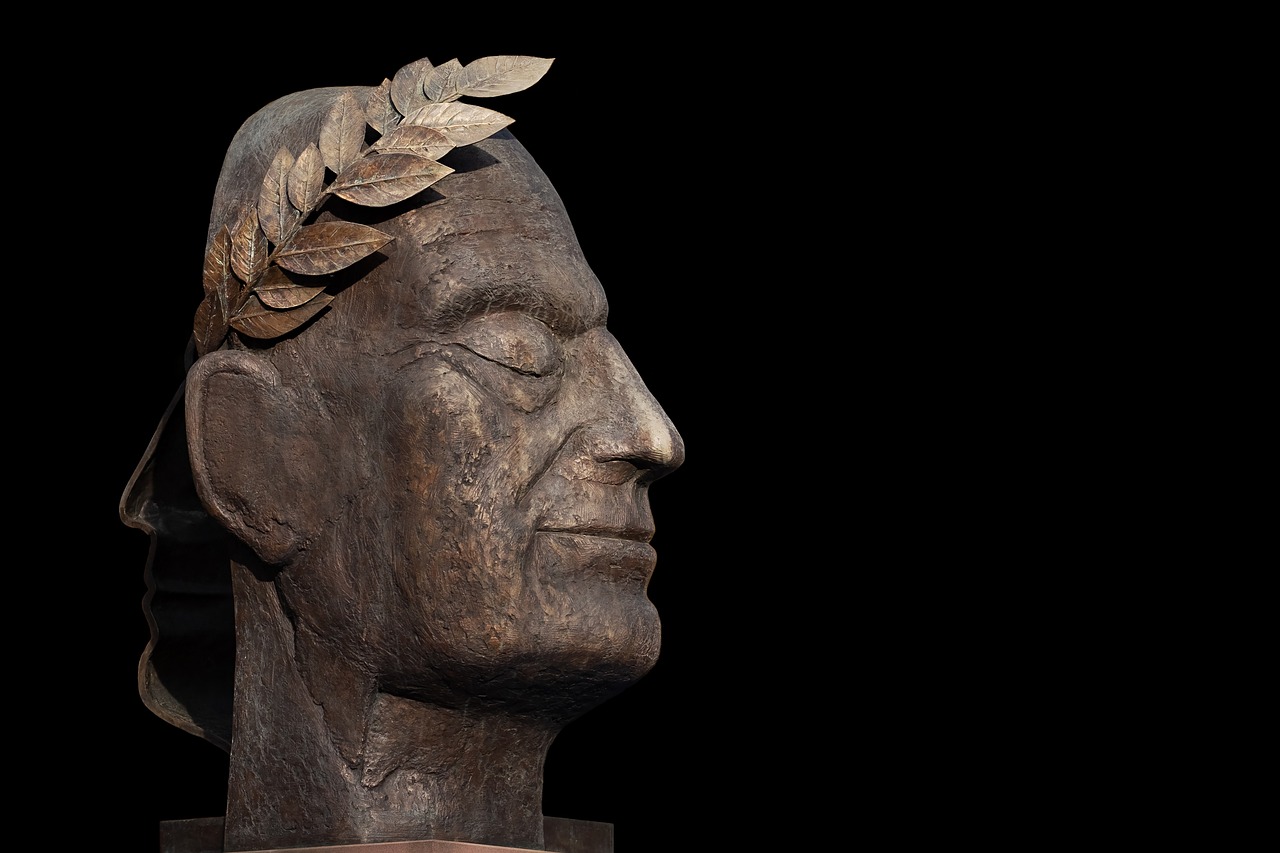
jus civile,
jus civile was a fundamental concept in the legal system of the Roman Republic. It referred to the civil law that governed the rights and relationships of Roman citizens. This body of law was distinct from jus gentium, which dealt with matters involving foreigners and non-citizens. The development of jus civile played a crucial role in shaping Roman society, as it outlined the legal rights and obligations of individuals within the Roman state. It encompassed various aspects of private law, such as property rights, contracts, and family law, providing a framework for resolving disputes and maintaining order within the Republic.

and its influence on the legal systems of contemporary societies.
The legal system of the Roman Republic played a pivotal role in shaping the legal systems of contemporary societies. One of the most significant contributions was the development of the Twelve Tables, a set of laws that formed the foundation of Roman law. These laws addressed various aspects of daily life, including property rights, family matters, and criminal offenses, providing a structured legal framework for Roman citizens. The concept of jus civile, or civil law, emphasized the importance of legal rights and obligations among individuals, laying the groundwork for modern legal systems that prioritize the protection of individual rights and the resolution of disputes through legal means.

Senate and Magistrates
During the era of the Roman Republic, the Senate and magistrates played pivotal roles in the governance and administration of the state. The Roman Senate, composed of elder statesmen known as senators, held significant power in decision-making processes and policy formulation. This esteemed body not only deliberated on crucial matters of state but also served as an advisory council to the magistrates, providing guidance and expertise in matters of legislation and foreign affairs.
Magistrates, on the other hand, were elected officials entrusted with the executive authority to implement laws and oversee the day-to-day operations of the government. From consuls to praetors, these officials held varying degrees of power and responsibilities, with each magistracy carrying specific duties and jurisdictions. The system of checks and balances between the Senate and magistrates ensured a level of accountability and prevented any single individual or institution from monopolizing power.
Moreover, the Roman Republic's governance structure emphasized the importance of collective decision-making and consensus-building, reflecting a commitment to the principles of representative government and civic participation. The Senate and magistrates worked in tandem to uphold the rule of law, maintain public order, and safeguard the interests of the Roman citizens.
Additionally, the concept of imperium, or the legal authority vested in magistrates to enforce laws and command military forces, underscored the dual nature of their roles as both civil administrators and military leaders. This dual capacity of magistrates exemplified the interconnectedness of governance and military affairs in the Roman Republic, where the maintenance of internal order was intrinsically linked to the defense of the state against external threats.
Overall, the synergy between the Senate and magistrates in the Roman Republic exemplified a sophisticated system of governance that prioritized stability, accountability, and the collective welfare of the Roman people. The legacy of their collaborative efforts continues to resonate in modern political structures, emphasizing the enduring relevance of Roman governance principles in shaping contemporary societies.

Citizenship and Rights
In the Roman Republic, citizenship was a pivotal concept that defined an individual's legal status, rights, and obligations within society. Unlike many ancient civilizations, Rome granted citizenship to a significant portion of its population, which played a crucial role in the Republic's governance and stability. Roman citizenship conferred various privileges, including the right to vote, stand for public office, and access to legal protections under Roman law. It was not merely a legal status but also a mark of belonging to the Roman community, with citizens expected to contribute to the common good through military service, taxation, and participation in civic life.
The rights associated with Roman citizenship were not uniform and evolved over time. Initially, citizenship was limited to the inhabitants of Rome itself, known as Roman citizens. As Rome expanded its territories, the concept of citizenship expanded as well, with different levels of rights granted to Roman citizens, Latin allies, and eventually all free inhabitants of the Roman Empire. Roman citizens enjoyed legal privileges such as the right to a fair trial, protection from certain forms of punishment, and the ability to appeal to higher authorities for justice. These rights formed the basis of modern legal principles regarding due process, equality before the law, and the protection of individual liberties.
The Roman concept of citizenship also influenced notions of civic duty and participation in governance. Citizens were expected to actively engage in the political life of the Republic, whether through voting in assemblies, serving in the military, or holding public office. This active participation was seen as essential for the maintenance of a healthy and stable society, where citizens had a stake in the decisions that shaped their lives. The idea of citizenship as a reciprocal relationship between the individual and the state, with rights and responsibilities intertwined, continues to resonate in modern democratic societies.
The legacy of Roman citizenship and rights extends beyond the borders of the ancient Republic, influencing the development of legal systems, political institutions, and concepts of citizenship in Western civilization. The Roman emphasis on legal equality, civic engagement, and the protection of individual freedoms has left a lasting imprint on modern democracies, where the rights of citizens are enshrined in constitutions and laws. By studying the history of Roman citizenship, we gain insights into the foundations of our own legal and political systems, rooted in the enduring principles of justice, rights, and civic participation.

Expansion and Administration
During the height of the Roman Republic, expansion and administration were integral to the Republic's power and influence. The Roman Republic's expansionist policies were driven by the desire to conquer new territories, expand trade routes, and increase their wealth and resources. Through military conquests and strategic alliances, the Romans established control over vast regions, stretching from Europe to North Africa and the Middle East.
Administratively, the Roman Republic developed sophisticated systems to govern its expanding territories. The Romans implemented a hierarchical structure of provincial governors, military commanders, and local officials to oversee the administration of conquered lands. This system ensured the collection of taxes, maintenance of order, and implementation of Roman laws and customs.
One of the key aspects of Roman administration was the concept of imperium, which granted authority to Roman officials to exercise power and make decisions on behalf of the Republic. This centralized authority allowed for efficient governance and coordination of resources across the vast Roman territories.
Moreover, the Romans were adept at incorporating diverse cultures and populations into their empire, allowing for a degree of autonomy and self-governance in local matters. This approach to administration, known as indirect rule, enabled the Romans to maintain control while accommodating local customs and traditions.
Additionally, the Roman Republic established infrastructure projects such as roads, aqueducts, and public buildings to facilitate communication, trade, and governance throughout their territories. These engineering feats not only connected distant regions but also symbolized Roman power and civilization.
Overall, the expansion and administration of the Roman Republic were instrumental in shaping the governance of future empires and colonial powers. The legacy of Roman administrative practices, military strategies, and infrastructural developments continues to influence modern concepts of governance, territorial management, and cultural integration.
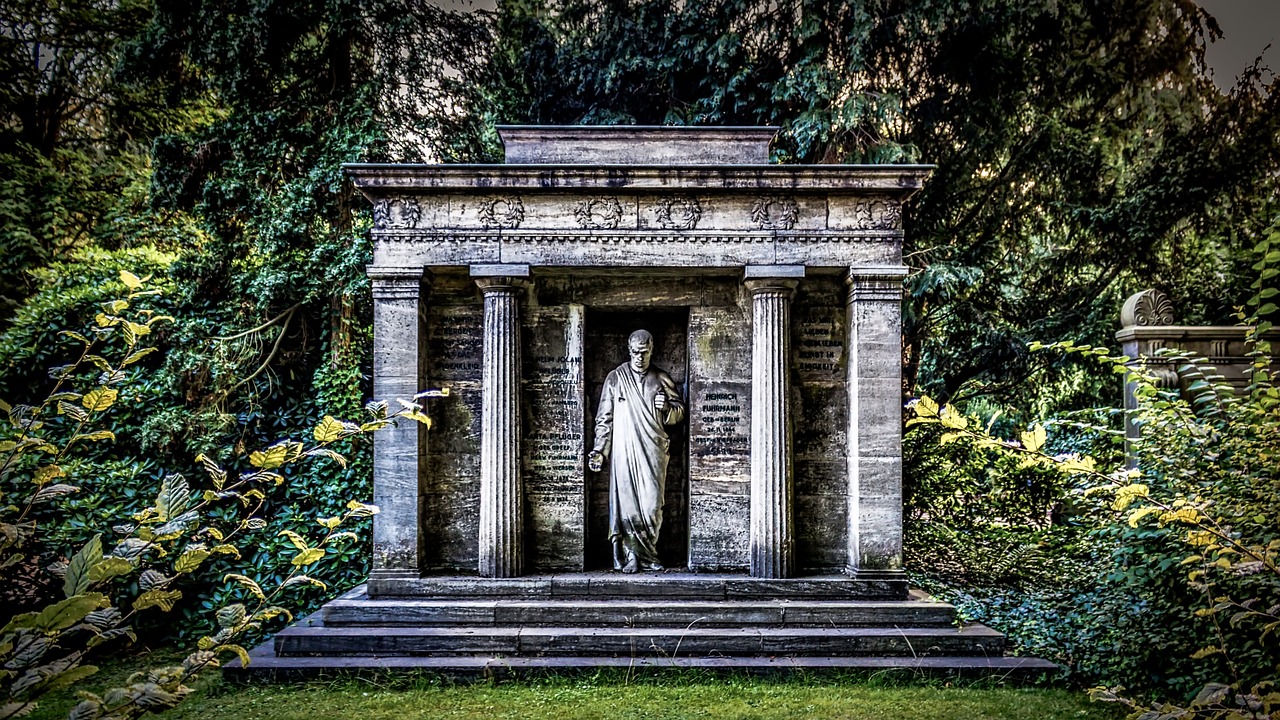
Legacy in Western Political Thought
When delving into the legacy of the Roman Republic in Western political thought, one cannot ignore the profound impact it has had on shaping democratic principles and governance structures. The ideals espoused by Roman Republicanism, such as civic virtue, mixed government, and the rule of law, have served as foundational pillars for modern political philosophy.
Imagine the Roman Republic as a grand architect, laying down the blueprints for the edifice of Western political thought that still stands tall today. The concept of civic virtue, emphasizing the importance of individual participation in the political process for the common good, echoes through the corridors of modern democracies.
Furthermore, the idea of mixed government, where power is distributed among different branches to prevent tyranny and ensure a balance of authority, finds resonance in the separation of powers doctrine central to many contemporary political systems.
Picture the Roman Republic as a guiding light, illuminating the path towards a government bound by the rule of law, where no one is above legal principles and justice is blind. This legacy has permeated through centuries, influencing the development of legal systems and reinforcing the importance of accountability and transparency in governance.
As we navigate the complexities of modern politics, grappling with issues of representation, accountability, and the rule of law, we can look back to the Roman Republic as a source of inspiration and guidance. Its legacy in Western political thought serves as a reminder of the enduring principles that underpin a just and democratic society.
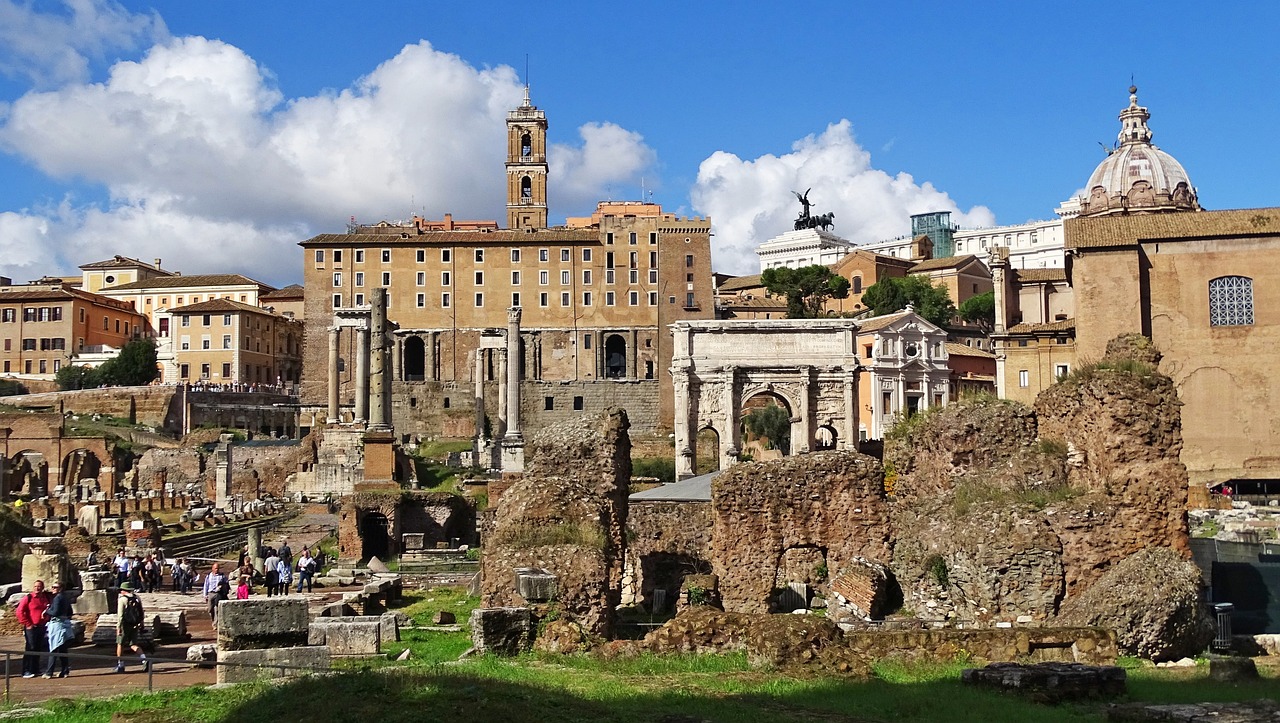
Impact on Modern Legal Systems
When examining the impact of the Roman Republic on modern legal systems, it becomes evident that the legacy of Roman law extends far beyond the boundaries of ancient Rome. The legal concepts and principles established during the time of the Roman Republic have left an indelible mark on the development of legal systems worldwide. From property rights to contracts, Roman legal ideas have shaped the foundation of modern jurisprudence.
One of the key contributions of the Roman legal system to modern law is the concept of jus civile, which emphasized the rights of Roman citizens. This notion of legal rights for citizens formed the basis for the recognition of individual rights in contemporary legal systems. The Roman legal framework also laid the groundwork for the development of civil law, influencing the structure and application of laws in many countries.
Moreover, the Roman Republic's emphasis on legal procedures and the codification of laws, exemplified by the Twelve Tables, set a precedent for the organization and clarity of legal systems. The meticulous attention to detail in legal matters and the establishment of standardized procedures have had a lasting impact on the administration of justice in modern legal systems.
Furthermore, Roman legal principles such as the protection of property rights and the enforcement of contracts have been instrumental in shaping commercial law and the regulation of economic activities in contemporary legal frameworks. The Roman Republic's emphasis on upholding the sanctity of contracts and property ownership has influenced the development of contract law and property rights protection in modern legal systems.
In essence, the legacy of the Roman Republic in the realm of law and governance continues to resonate in the legal systems of today. By studying the foundations of Roman law and understanding its impact on modern legal principles, we gain valuable insights into the evolution of legal thought and the enduring influence of ancient Rome on contemporary legal frameworks.
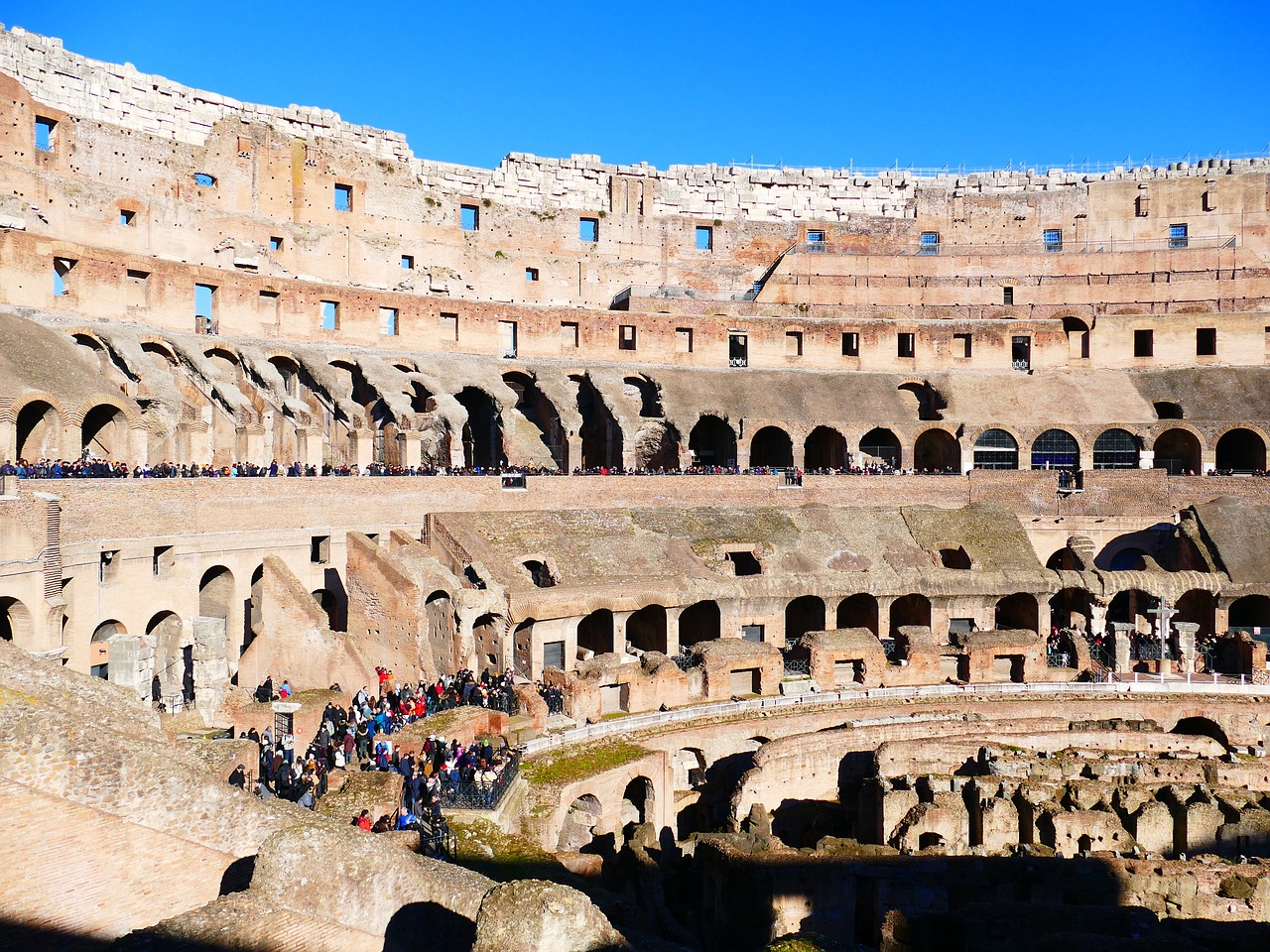
Challenges to Republican Governance
During its illustrious history, the Roman Republic faced a myriad of challenges that ultimately contributed to its decline. One of the primary challenges was the pervasive issue of corruption within the political system. As power and influence became concentrated in the hands of a select few, bribery, nepotism, and cronyism became rampant, eroding the foundational principles of the Republic.
Furthermore, the Republic's ambitious military expansion posed significant challenges to its governance. The constant need for conquest to sustain the economy and feed the growing population led to overextension and stretched the resources of the state to their limits. This relentless pursuit of territorial expansion ultimately strained the Republic's ability to govern effectively.
Another critical challenge that the Roman Republic faced was the rise of authoritarianism and the erosion of democratic values. As charismatic leaders emerged, promising stability and security in a time of uncertainty, the traditional republican institutions and principles were gradually undermined. The concentration of power in the hands of individuals such as Julius Caesar and Augustus marked a significant departure from the principles of representative government that had defined the Republic.
Moreover, internal divisions and factionalism among the Roman elite further exacerbated the challenges to republican governance. Political infighting, competing interests, and personal rivalries weakened the cohesion of the Republic and hindered its ability to address pressing issues and enact meaningful reforms.
In conclusion, the Roman Republic's legacy is not only defined by its remarkable achievements but also by the formidable challenges it faced. By examining these challenges, we gain valuable insights into the complexities of governance, the fragility of political institutions, and the enduring struggle to uphold democratic values in the face of adversity.
Frequently Asked Questions
- What were the key principles of governance in the Roman Republic?
The Roman Republic was characterized by principles such as representative government, separation of powers, and checks and balances. These concepts laid the foundation for modern political systems and influenced the development of democratic governance.
- How did Roman law influence contemporary legal systems?
Roman legal concepts, including the Twelve Tables and jus civile, had a significant impact on the development of modern legal systems. Ideas such as property rights, contracts, and civil law continue to shape jurisprudence in many societies today.
- What challenges led to the decline of the Roman Republic?
Internal factors such as corruption, military expansion, and the erosion of republican values, as well as external threats, contributed to the downfall of the Roman Republic. These challenges are relevant to understanding contemporary political struggles.
- How did Roman citizenship influence modern notions of rights?
Roman citizenship conferred certain rights and responsibilities on individuals, setting a precedent for the development of citizenship and individual rights in modern legal systems. The concept of citizenship in Rome has had a lasting impact on ideas of rights and obligations.

